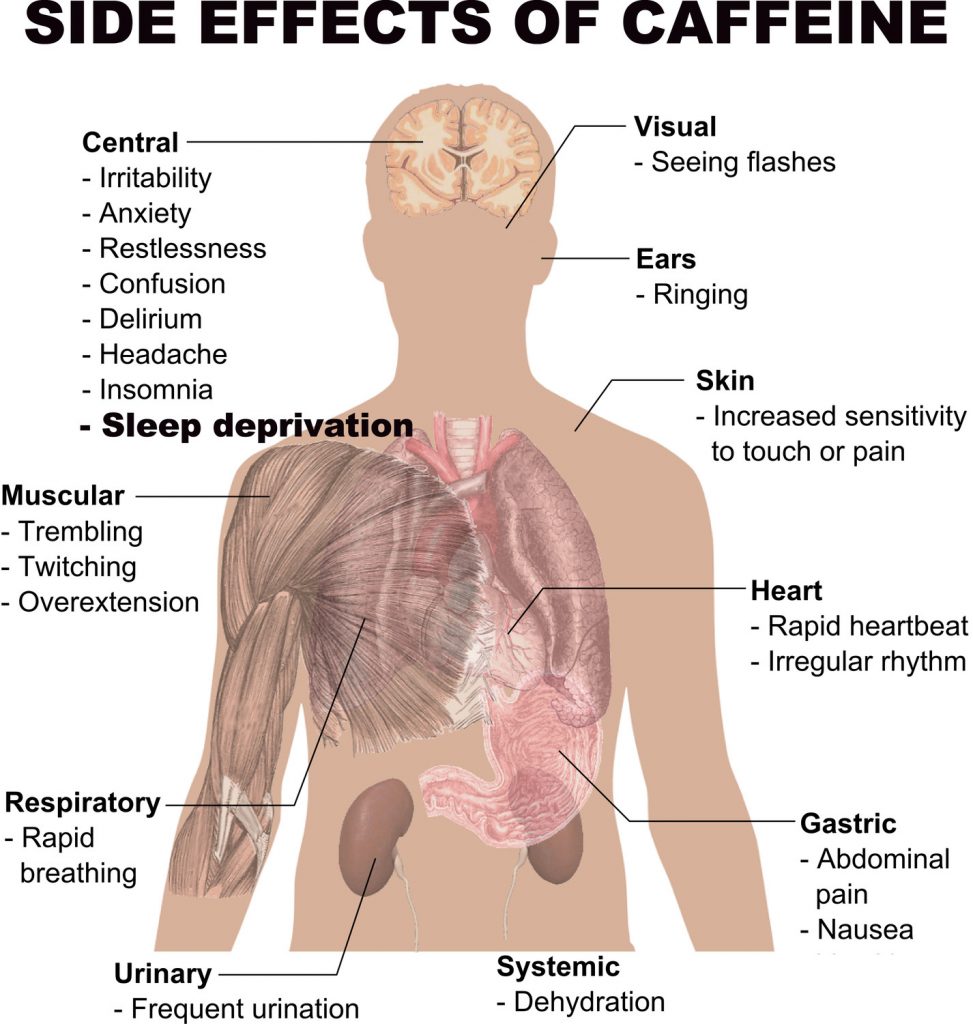Consuming too much caffeine can lead to a range of side effects, which can vary from person to person based on individual tolerance levels. Here are some common side effects of excessive caffeine intake:
https://sumhelath.com/wp-admin/post.php?post=975&action=edit
Insomnia: Caffeine is a central nervous system stimulant that can interfere with your ability to fall asleep and stay asleep. Consuming caffeine too close to bedtime can disrupt your sleep patterns.
Nervousness and Restlessness: High doses of caffeine can lead to feelings of restlessness, jitteriness, and nervousness. You may find it difficult to sit still or concentrate.
Increased Heart Rate: Caffeine can cause your heart rate to increase, especially in sensitive individuals. This can lead to palpitations and an overall feeling of being on edge.
Digestive Issues: Some people may experience digestive problems such as stomach upset, acid reflux, or even diarrhoea as a result of excessive caffeine consumption.
Headaches: Ironically, caffeine withdrawal can lead to headaches in those who are accustomed to high levels of caffeine. However, some individuals may also experience headaches as a direct result of too much caffeine.
Anxiety and Panic Attacks: High doses of caffeine can exacerbate anxiety symptoms and, in some cases, even trigger panic attacks, especially in individuals prone to anxiety disorders.
High Blood Pressure: Caffeine can temporarily raise blood pressure, which may be a concern for those with hypertension or cardiovascular issues.
Increased Urination: Caffeine is a diuretic, meaning it can increase urine production. This can lead to dehydration if you don’t compensate by drinking enough water.
Muscle Tremors: Some people may experience muscle tremors or shakiness, especially in their hands, as a result of excessive caffeine intake.
Dependency and Withdrawal: Regular, high caffeine intake can lead to physical dependency. When you cut back on caffeine or skip your usual intake, you may experience withdrawal symptoms like irritability, fatigue, and difficulty concentrating.
Gastrointestinal Distress: Excessive caffeine consumption can irritate the gastrointestinal lining, potentially leading to gastritis or other digestive issues.
Bone Health: High caffeine intake may interfere with calcium absorption, potentially affecting bone health over time.
It’s important to note that individual tolerance to caffeine varies widely. Some people may experience these side effects at relatively low doses, while others can handle higher amounts without issues. It’s generally recommended to limit caffeine intake to moderate levels, which is typically considered to be around 200-400 milligrams per day for most adults. However, some individuals may need to consume even less to avoid negative side effects. If you’re concerned about your caffeine consumption or its effects on your health, it’s a good idea to consult with a healthcare professional.



